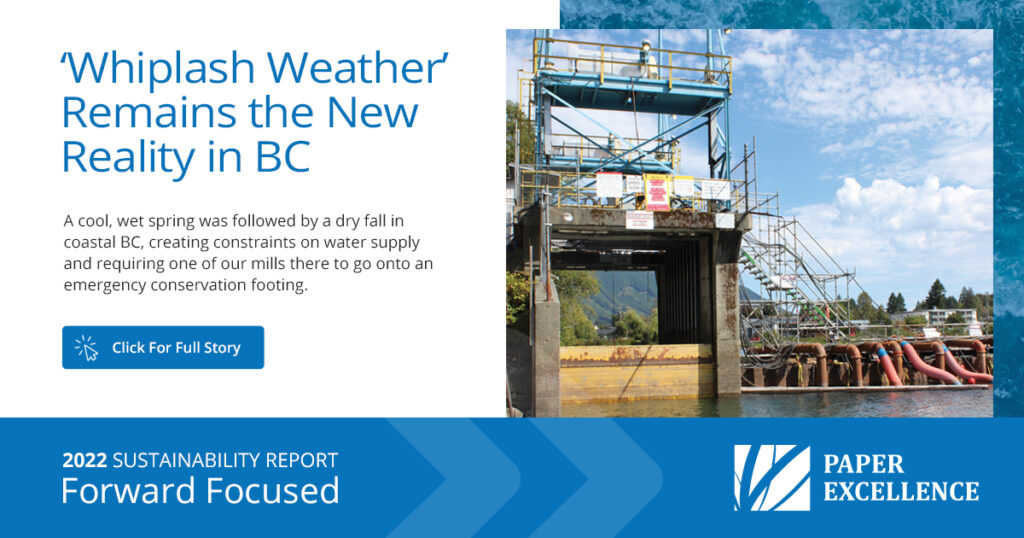
While we didn’t experience the same weather extremes as in 2021, 2022 was another year of unusual conditions across our operating areas. For coastal BC, this meant continued water scarcity caused by very late autumn rains despite the cool, wet spring.
Our Howe Sound mill faced particularly low levels in Lake 7, which feeds Rainy River from which the mill gets its water. As a result, the mill went onto an emergency footing in September. A daily water-reduction action tracker was distributed to all employees, keeping them informed and engaged on a wide range of efforts.
Strategies included capture of streams of water that might otherwise go to the sewer, such as wastewater from compressors and sealing water in pumps, and changing the temperature settings on equipment where water is used for cooling. Extensive additional hosing and pumps were installed around the mill to make this possible.
Our Crofton mill operates a weir that controls water flows into the Cowichan River, under a provincial licence. It coordinates closely with First Nations and community stakeholders to inform this vital task, recognizing that the river is not only the source of the water for the mill, but also of drinking water for the local community, and of vital fish habitat with particular importance to the Cowichan Tribes.
Equipment was at the ready in the late summer of 2022 to pump additional water into the river, but rain arrived in time to make this unnecessary.
Drought-driven production impacts were avoided at our mills in 2022, albeit narrowly. But the impacts of the weather conditions experienced can extend across multiple years, making water management a crucial ongoing operational focal point.
